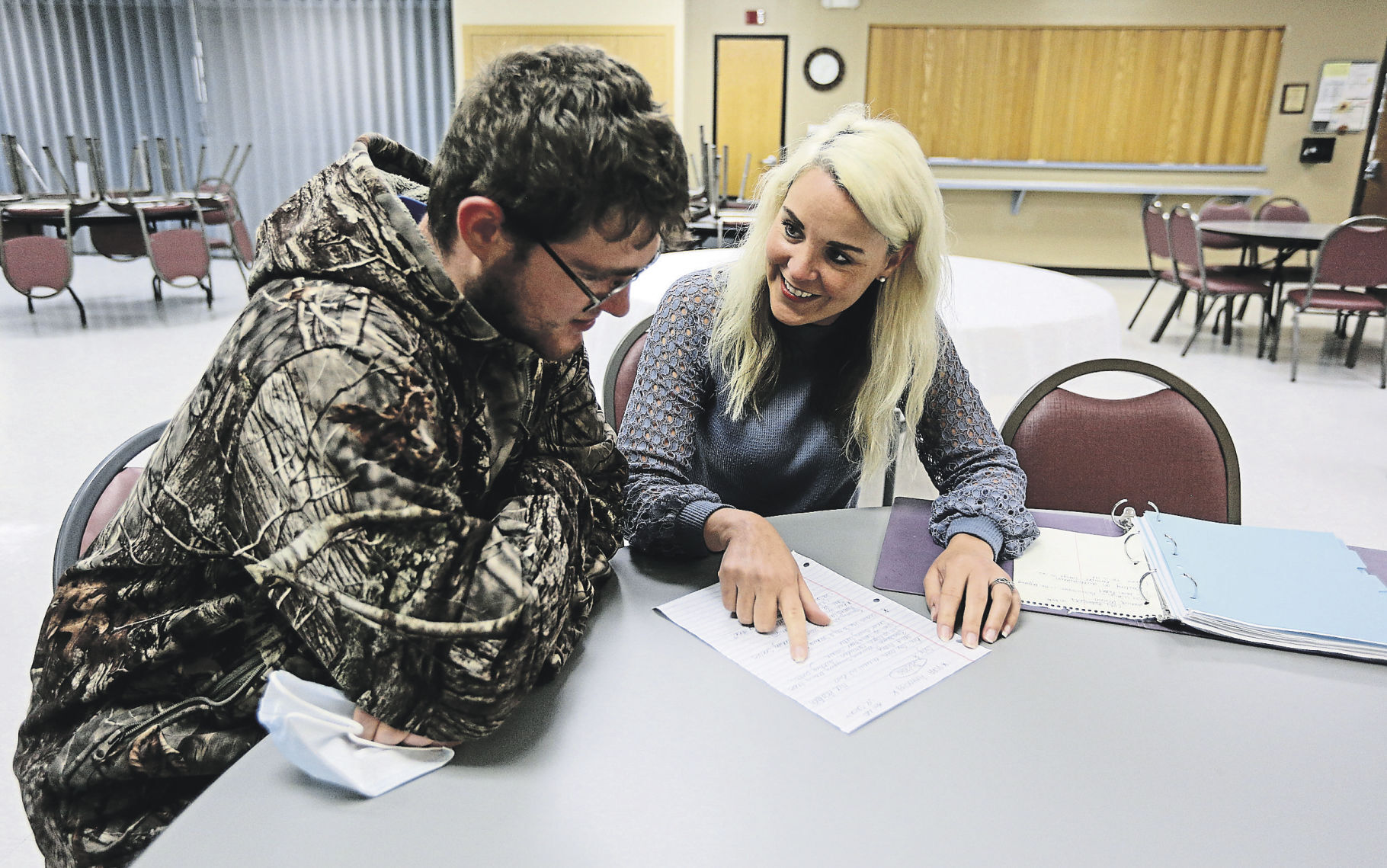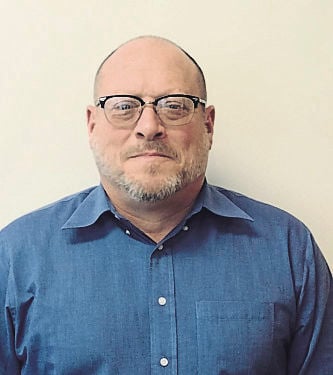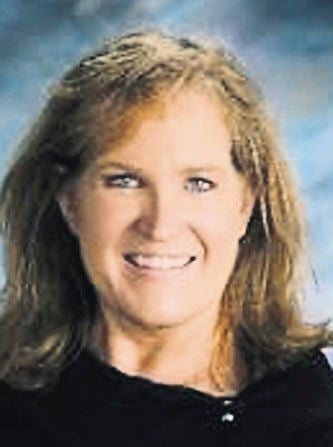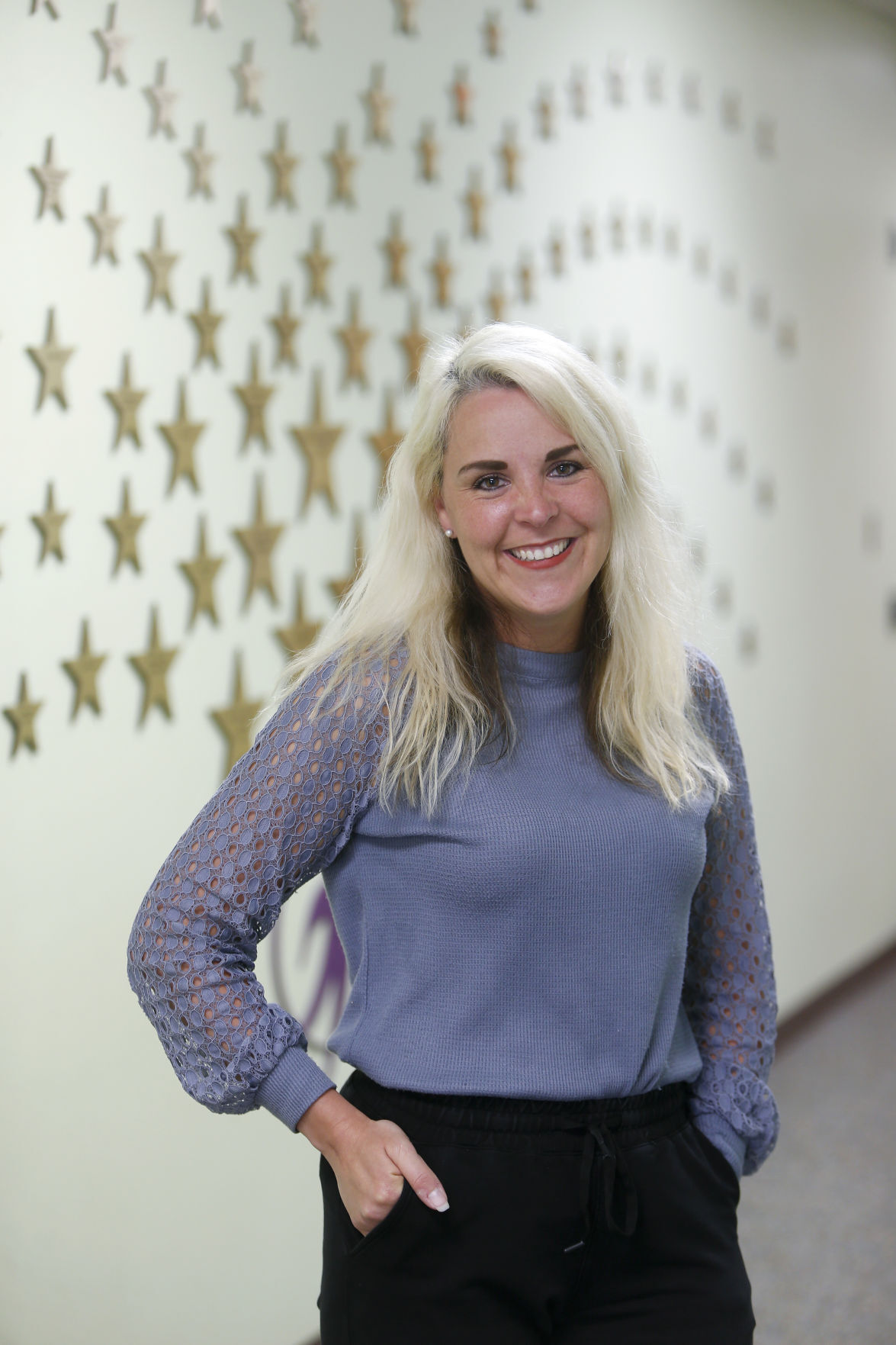Self-worth and a sense of purpose
Jason Rubel and the IVRS staff provided some positives and some challenges they’ve found while working with individuals with disabilities.
Positives:
• Finding a job that is right for each individual with their skills. Everyone is capable of doing work. They can bring different strengths to the workplace, focusing on what they can do, not what they can’t.
• Seeing that our job candidates feel a sense of purpose and self-worth when employed.
• How work improves the participant’s finances and how some individuals work off their benefits from SSI.
• It’s very rewarding helping individuals develop the skills necessary to obtain employment.
• Assisting individuals conquer their daily challenges and celebrating their success with them.
• Great relationships are established between the individuals and employers.
Challenges
• The lack of access to employment opportunities such as accommodations at work, and accessible public transportation to get them to work and back.
• Negative attitudes/stereotyping of people toward individuals with disabilities
Intro to People First Language
“For too long, people who happen to have conditions we call “disabilities” have been subjected to devaluation, marginalization, prejudice, and more,” Kathie Snow from Disability is Natural.com, explained. “And the first way to devalue someone is through language, by using words or labels to identify a person/group as “less-than,” as “the other,” “not like us,” and so forth. Once a person/group has been identified this way, it makes it easier to justify prejudice and discrimination. Our language shapes our attitudes; our attitudes shape our language; they’re intertwined. And our attitudes and language drive our actions.”
Helping individuals with disabilities gain the skills to find meaningful work is the goal of several area organizations.
Take a look and learn about the programs offered by Iowa Vocational Rehabilitation Services, Hills & Dales and Goodwill Industries of Northeast Iowa.
Iowa Vocational Rehabilitation Services
Iowa Vocational Rehabilitation Services (IVRS) provides services for people with disabilities that focus on job placement, training and job preparation services to assist the person in obtaining, retaining or advancing in a job.
“We provide assessment, vocational counseling and guidance, rehabilitation technology, training funds, job placement, job readiness training, job search, resume writing, mock interviewing, job follow-up, on-the-job training, self-employment, supported employment, transportation, benefits planning and assistive technology and more,” said Jason Rubel, rehabilitation supervisor.
IVRS has two customers: The individual job seekers and their business partners.
“We build relationships with businesses by providing them with prescreened applicants and providing support to businesses and individuals on the job. Our business relationships not only assist in placement, but also with career exploration through business tours, job shadows, informational interviews and externships. These tools allow both of our customers the chance to get to know one another and provide some idea to both the business and the potential applicant as far as fit of the job,” he said.
When helping job candidates, IVRS considers both interest areas and aptitude to determine what type of job would be a good fit for the job seeker. They also assist in researching labor market information for the candidate’s area of interest. IVRS researches any training that might be needed and can assist with the cost of such training.
Externships allow extensive on-the-job-training while allowing the business and the job candidate to work together and get to know one another for up to 320 hours of paid training with no cost or liability to the business.
“Employers hire the people who are the best fit for the job. Most businesses hire people with disabilities whether they know it or not, as it’s up to the applicant to disclose their disability during the hiring process. I have met with businesses in the past that implied that people with disabilities would not qualify for their jobs, but confidentially I know they already employ individuals with disabilities,” Rubel said.
“Other employers are more than willing to look at people with disabilities as good candidates, especially in this job market where employers are looking for solutions they wouldn’t have in the past. They will still hire whoever is the best fit for the position and who can fulfill the functions of the job with or without accommodation,” Rubel said.
IVRS works with local business partners including Crescent Community Health, Unity Point Health-Finley Hospital, Dubuque Screw Products, Hodge, Duluth Trading Co., University of Dubuque Food Service, Hy-Vee stores, McCoy Group, Truck Country, Diamond Jo Casino, Klauer Mfg. and Rainbo Oil.
Rubel said there is a range of disabilities.
“Many disabilities are invisible and go unnoticed without disclosure. These could be mental health issues such as anxiety or depression, learning disabilities such as dyslexia or dysnomia (learning, language processing or inattention concerns), or physical limitations such as uncontrolled diabetes, a seizure disorder or a back impairment. More visible disabilities can be mobility issues for amputees, spinal cord injuries, spina bifida or cerebral palsy.
“We have qualified candidates at all levels of education, interest and aptitude. We have served those with significant disabilities who are happy working a few hours a week at a customized job due to their limitations and those who are now doctors, teachers and lawyers,” Rubel said.
The COVID-19 pandemic caused some struggles as many individuals with disabilities have underlying conditions that compromised them, and they were understandably not wanting to enter the workforce during the pandemic, according to Rubel. Many were also laid off, especially in the hospitality industries. There also was an adjustment for IVRS staff to work remotely.
“Today things are in the ‘new normal.’ We do more remote meetings and virtual activities with our job candidates. Some of our staff also work a hybrid workday with a couple of days working from home each week. COVID was definitely a hiccup for us, but we are moving forward now and are set to place many more people this program year than we did during the last program year,” Rubel said.
Americans with Disabilities Act
The Americans with Disabilities Act (ADA) was signed into law on July 26, 1990, after many years of advocacy by the disability rights and civil rights communities. ADA guarantees that people with disabilities have the same opportunities as everyone else to enjoy employment opportunities, purchase goods and services and participate in state and local government programs.
The ADA was modeled after the Civil Rights Act of 1964, which prohibits discrimination on the basis of race, color, religion, sex or national origin. The ADA is an equal opportunity law for people with disabilities and protects from discrimination in all employment practices, including: Job application procedures, hiring, firing, training, pay, promotion, benefits and leave. You also have a right to be free from harassment because of your disability and an employer may not fire or discipline you for asserting your rights under the ADA. Most importantly, you have a right to request a reasonable accommodation for the hiring process and on the job.
A reasonable accommodation is any change or adjustment to a job, the work environment or the way things usually are done that would allow you to apply for a job, perform job functions or enjoy equal access to benefits available to other individuals in the workplace. There are many types of things that could help people with disabilities work successfully. Some of the most common types of accommodations from ada.gov include:
• Physical changes, such as installing a ramp or modifying a workspace or restroom.
• Sign language interpreters for people who are deaf or readers for people who are blind.
• Providing a quieter workspace or making other changes to reduce noisy distractions for someone with a mental disability.
• Training and other written materials in an accessible format, such as in Braille, on audio tape or on CD.
• TTYs for use with telephones by people who are deaf, and hardware and software that make computers accessible to people with vision impairments or who have difficulty using their hands.
• Time off for someone who needs treatment for a disability.
Hills & Dales
Hills & Dales provides employment services and opportunities for individuals to explore integrated work environments and develop work opportunities to obtain employment at or above minimum wage, related to their interests and skill ability.
The organization works with local employers including Asbury Plaza Hy-Vee, Papa Johns, HACAP, RIE Coating, University of Dubuque Dining Services, Dubuque Marina and Yardarm, JT Firestarters and Miracle Car Wash, to increase employment opportunities and facilitate successful employment.
Hills & Dales assists job applicants in identifying interests/skills, preparing for and obtaining employment and provides ongoing job support.
“We provide an individualized program of services which focus on developing appropriate job skills, work habits, behaviors and socialization,” said Kara Huss, community services director. “We offer employment services as all persons deserve the opportunity to work in a competitive employment setting if they choose. No disability should ever hold someone back from their dreams of having a career.”
“When our job candidates are placed, our whole team gets that ‘first job’ sensation. It becomes very rewarding seeing these individuals work towards independence and becoming a taxpayer, just like you and I. We have found out from our employers that our job candidates are generally more reliable and hardworking than the majority of the workforce they employ,” Huss said.
“The passion for assisting clients in getting jobs is beyond the paycheck. Often when you meet a new person, generally introductions include two questions: ‘What is your name?’ and ‘What do you do for a living?’ At Hills and Dales, we assist our clients in answering that second question,” Huss said.
During COVID, the services offered by Hills & Dales were suspended due to voluntary reasons for the safety of the individual’s family and themselves. The majority of the population of clients Hills & Dales serves typically are immunocompromised and had to make the challenging decision regarding their employment and health.
Others that did continue working were deemed essential and continued to work through the same challenges all other employees faced. Hills & Dales job coaches supported those that chose to remain employed at various essential businesses. A few clients experienced a loss of hours due to the business changing their hours due to the pandemic.
“Some challenges that we see while assisting clients is shifts may be too long for our clients. Thankfully, one thing COVID and the workforce crisis has pushed our world to do is get more creative, in which we are starting to see more businesses willing to carve out a job or customize a position for our candidates. This is one barrier we continue to break down with our businesses in the community,” Huss said.
“When we assist a client in finding a job, we are not just there for the job candidate,” Huss said. “Our employment specialists develop a relationship and rapport with the business as well. The businesses see the quality of the job candidates and form a sense of trust with our staff through this process. Once that relationship is built, often the HR managers will reach out to our employment specialists or myself and ask if we have anyone for other positions that they are hiring for.”
Goodwill Industries of Northeast Iowa
While Goodwill is best known for its thrift stores, it also assists clients in finding a job in the community, assessing the client’s job seeking skills and abilities and assisting with job development and job coaching goals.
Margee Woywood, director of mission services, described the programs and services offered by Goodwill Industries of Northeast Iowa.
Work Readiness Assessments is a short program in which job candidates spend 12 hours working in an area of interest at a community business. The purpose is to allow the individual to try the job to determine if they like the job and to determine what accommodations would be needed for them to be able to be successful in the job. It also allows the business to observe the individual doing the work and to determine if the individual can meet job requirements for the position.
Discovery is a program designed to determine what things motivate and interest the job candidate. The focus is on finding things that they are good at and things that they like to do. Time is spent interviewing family and other natural supports in their life to learn about them personally. Information is narrowed down based on their interests to identify three job themes.
The Goodwill job developer sets up informational interviews with businesses that match the job themes identified providing the job candidate with an opportunity to learn more about this industry. After the informational interviews are completed, work experiences are set up in these job theme areas as well allowing the individual to try the work. At the end of 60- hours of these Discovery activities, a meeting is scheduled for the job seeker and their team to come together and identify 60 local businesses that fit their three job themes (20 businesses for each theme). They are next referred for customized employment and the job developer begins the job search with the job candidate using this list of 60 businesses.
Job development is a service in which the job developer works with the job candidate to apply, interview and obtain employment based on the individuals interest and skills.
Job coaching offers support to the job candidate to learn their job and then provides on-going support to help them to maintain their job. These supports are individualized and determined by the individual and their team.
Externships allow a business to have an individual work in a job without hiring them in the beginning. It is for a set number of hours and the business is expected to hire the individual at the end of the externship if they have met the employer’s expectations for the position. Goodwill is officially the employer during the Externship and pays the job candidate. This allows the business to let the job seeker try the job without bringing them onto their payroll until they can determine that the individual can meet the job requirements.
Enclave is a training program at our retail store in Dubuque and is not a job. It offered training for four individuals working together on a crew under the supervision of a job coach. Participants are paid minimum wage for this training program and learn basic work skills such as coming to work as scheduled, staying on task, being organized and efficient at work, getting along with co-workers, providing customer service, accepting direction from a supervisor, learning to work under multiple supervisors, taking a break and returning from their break on time, learning how to use a time clock for the start and end of their work shift, etc. Individuals working on the Enclave should have a goal to move into community employment and are referred to Job Development when appropriate.
Some of the businesses who employ individuals supported with Goodwill job coaching or who have been assisted with job development are: Hy-Vee, Hodge, Oak Park Place, Sam’s, Envision, Anderson Windows, Panera, Walmart, Target, Dairy Queen, Burger King, University of Dubuque, Cremer’s, Grand Harbor, Mount St. Francis, Miracle Car Wash, Old Navy, Pet Smart and others.
“We would love more opportunities to help educate area businesses about the benefits of hiring individuals with disabilities and help employers understand that individuals with disabilities can meet their job needs,” Woywood said.
During COVID many of the individuals who were competitively employed were temporarily laid off due to businesses shutting down.
“We did have an individual who worked at Mercy Hospital in their Environmental Services Department who continued to work during COVID and continued to receive job coaching. Individuals who were employed prior to COVID are all back to work at this time and are receiving job coaching.
Joan Steffen, program manager for community employment at Goodwill, said that there are a lot of jobs available and employers have seen success from their programs. “Some employers have reached out to us listing the positions they have open and asking if we can help fill them.”
“Our participants want to work in the community and they are so excited to get that paycheck. They enjoy being in the community and making a difference. Sometimes transportation can be a challenge if they work at night or early mornings but now there are a few more options. Also, some clients can only work part time because of their benefits and scheduling takes a little more time to plan,” Steffen said.






